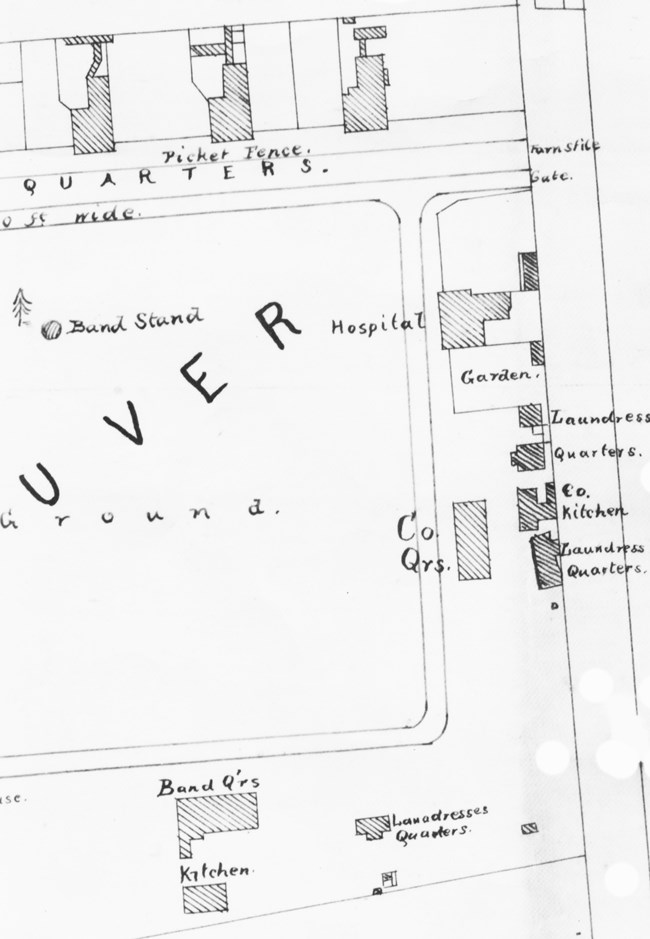Part of a series of articles titled Vancouver Barracks in the 1880s.
Article
Vancouver Barracks in the 1880s: Working Women

Library of Congress, 2012649701

NPS Photo
Laundresses supplemented their husbands' income by, of course, doing laundry for the soldiers and officers of the post, but they also engaged in several other money-making activities. These women may have sold pies or other baked goods, and charged for their services as nurses and midwives to other women. Laundresses most often lived separately from their husbands, in designated laundress's quarters. There, many of these women were caring for young children in addition to working outside the home.
"Laundry was a labor intensive and backbreaking job: items to be laundered must first be sorted into those that could be washed and boiled, those to be just washed, and those to be cleaned, i.e., spot removal or brushing. The washable clothing was then soaked, washed, boiled, rinsed, dried, and, if circumstances permitted, starched and ironed. A company laundress probably had the additional chores of marking the laundry items with the owner's name or initials, and mending and altering the garments. Since officers paid more to have their laundry done, more care was probably given to their clothes, with bluing and starching their shirts, as well as brushing and pressing their uniforms."
- Virginia Mescher, Tubs and Suds
Laundresses had been an important part of life at Vancouver Barracks since its founding in 1849. But in 1878, a new Army regulation banned women from accompanying troops as laundresses. This change would have a huge impact on the families of enlisted men. The laundresses who were attached to the 21st Infantry at Vancouver Barracks in 1880 would not have been able to follow their husbands when the 21st moved from Vancouver to Nebraska in 1884. Some, like Private William Shaw, who was married to laundress Eliza Shaw, chose to leave military service and return to civilian life. William and Eliza lived the remainder of their lives in Vancouver.
Last updated: March 15, 2024
